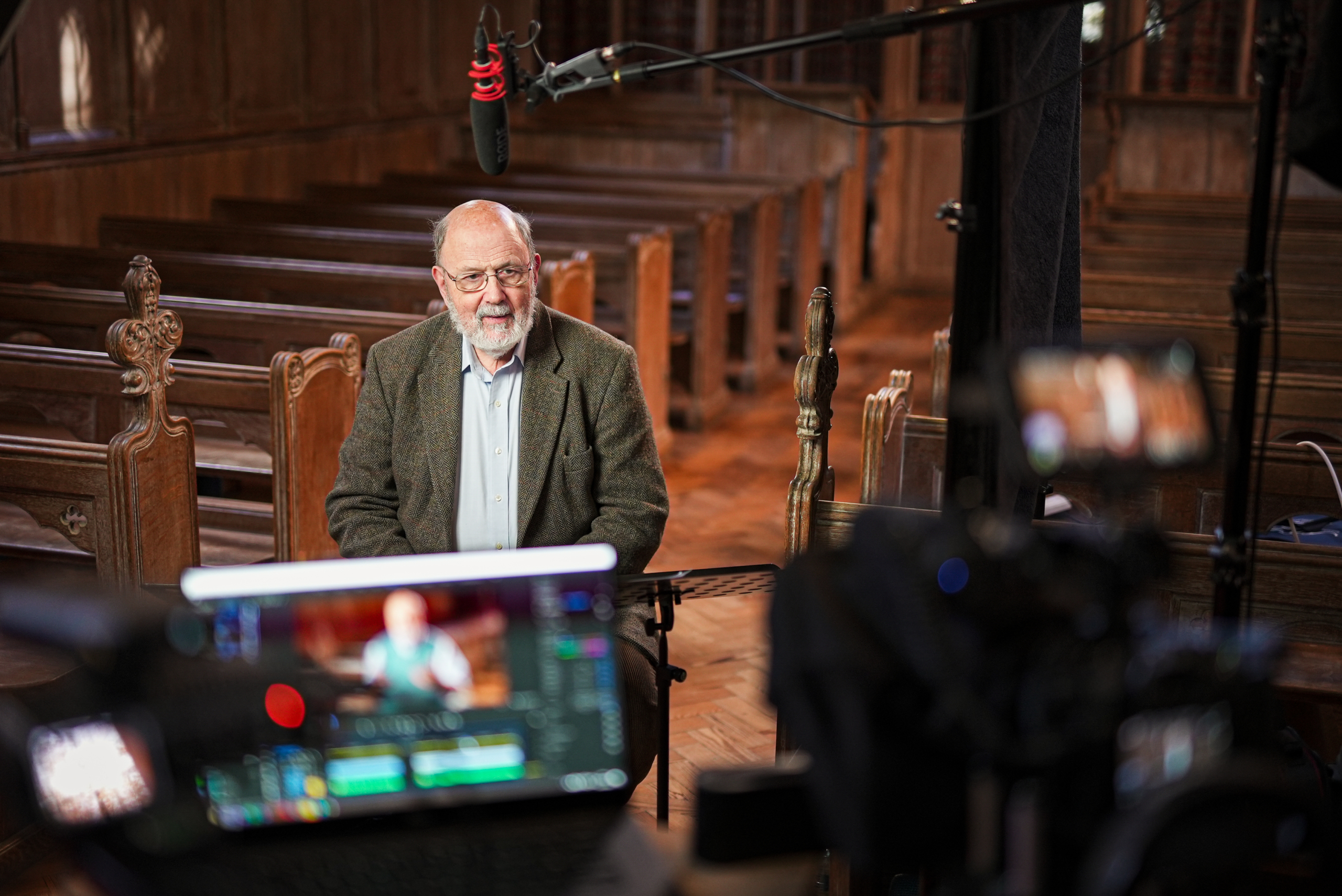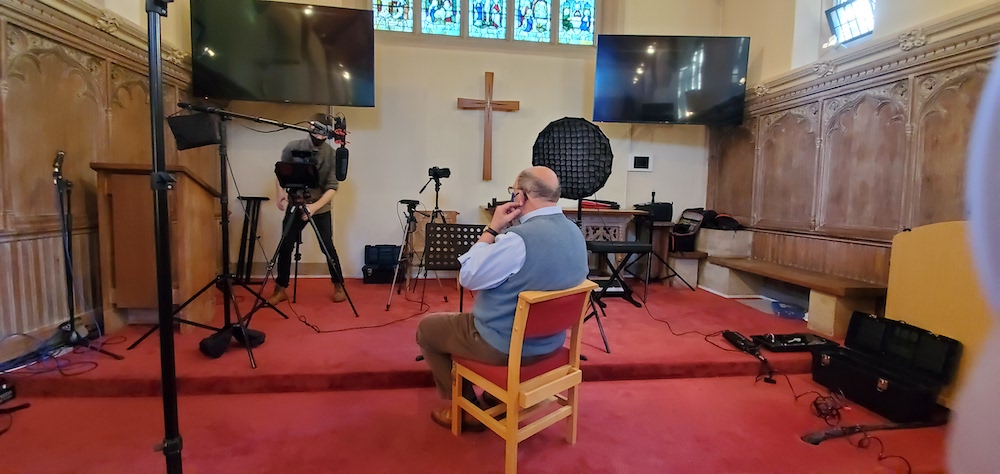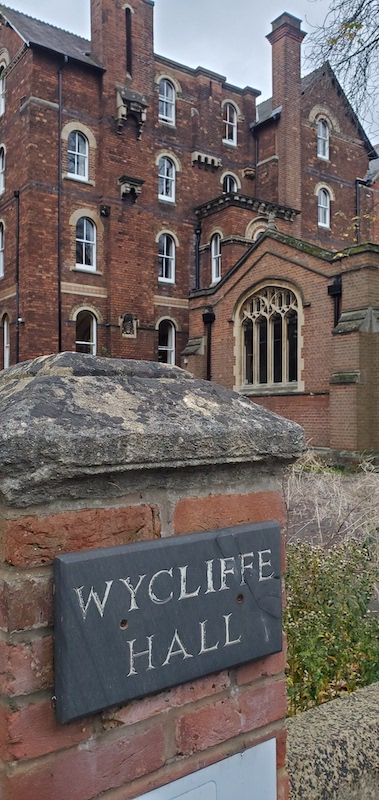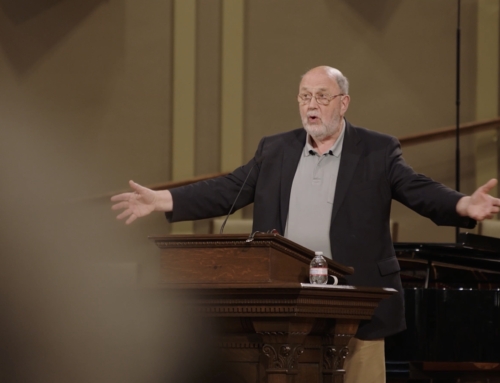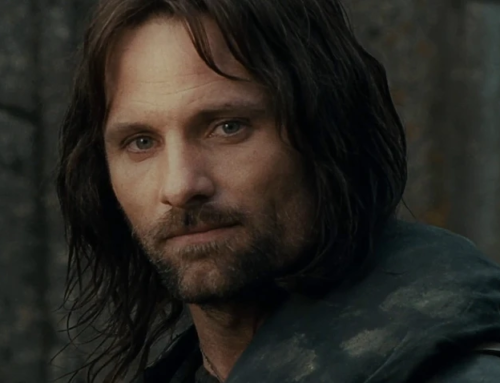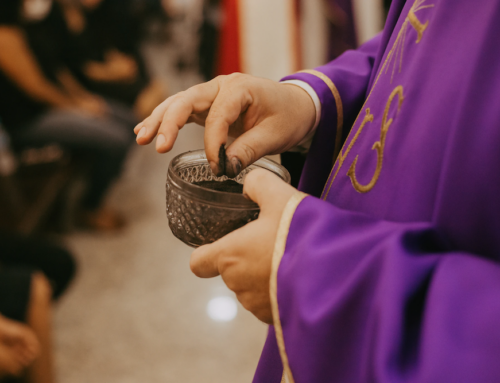In just a few days, we’ll be releasing Surprised by the God of Hope.
Who is this course for?
When was the last time that you were surprised? Where were you? Who were you with and how did it happen? I’ll admit, sometimes I don’t like surprises. Perhaps, it is because my mind retrieves memories of pop-quizzes or reminds me of my former co-worker—a well-known prankster at the call centre where I worked—who used to sneak up behind me and shake my chair (which would make me have to stifle a loud scream when I was on the phone talking to a customer!)
However, this course, ‘Surprised by the God of Hope’ is not just for people who really enjoy surprises. Rather, it is for anyone who is willing to be caught off guard by what the Creator God is doing right here, right now. It is for those who have questions about what happens after we die—what Prof. N.T. Wright refers to as ‘the life after life after death’. This course is for people open to exploring the hope for renewed human beings—that’s you and me—working with God in his new creation in a way that exclaims, Wow! I had no idea! How could I have missed this? This course is for anyone who has not stopped hoping for the God of surprises who dwells in our midst by the Spirit of the risen Jesus.
What is this course about?
One problem this course is trying to address is Western Christianity’s fixation on the good news being the answer for how to get to heaven after death. The goal to dispel the view that this world is a waiting room that we endure patiently until we eventually go away from ‘down here’ (the earth) to get ‘up’ to right place (heaven). Prof. Wright will demonstrate that the story the Bible is telling envisages God’s new creation on earth as in heaven. This involves the surprising move of the God of hope coming to dwell with his people in Jesus of Nazareth, and the filling of the earth with his glory, until the day when God floods the whole earth fully and finally with his presence, forever.
This course is all about the God of hope who abides not abandons.
Those who have read Surprised by Hope will appreciate a fresh take on the lasting themes from the book. However, in this course, Prof. N.T. Wright also brings new ideas and content that may also be ‘surprising’. You will see how the God of hope has taken charge of his world in and through our sovereign Lord and King, Jesus.
This course will also address some common misconceptions about the locus of Christian hope. I’m reminded of the lyrics of an old song by the band U2:
You broke the bonds
And you loosed the chains
Carried the cross
Of my shame
Oh my shame
You know I believe itBut I still haven’t found what I’m looking for…
Many people haven’t yet found what they’re looking for, because for them hope is a long way away—it is based on going to place that is very distant and somewhere very far off in the future. The surprise of hope is that it has actually been with us all along! For me, when the light came on and the penny dropped it was a bit like the experience of losing my keys and after searching all over the house looking everywhere for them, I suddenly realised they’d been in my pocket the whole time.
When did you film this course?
You may be wondering when we filmed the course and how we navigated the complexities of a global pandemic. It began when my friends John and Margaret offered to host me in their home for the 14 days of my required time of quarantine, which was the first step that opened up the possibility for getting this course off the ground.

Next, my husband and I prepared beforehand by isolating before my trip—we are both fortunate to have the ability and option to work from home. In mid-October 2020, he dropped my off at the international terminal of O’hare airport in Chicago, which is normally bustling with people, cars, and activity. When we arrived, the whole area was deserted. Inside, there was no one waiting to check-in and there were only two people in line at security. It took me a total of eight minutes from the time I entered the airport until I was waiting at my gate. So much for showing up three hours early for an international flight.
Boarding the plane was a bit eerie because it seemed like I was all by myself. Once aboard, there was no one next to me, in front, behind or anywhere near me in the entire cabin as far as I could see. I did see a few others boarding and we all wore masks that we kept on for the duration of the flight.
Once I arrived at John and Margaret’s house, I could not leave their property for any reason and I was entirely dependent on them for lodging and meals. I was not allowed to leave for exercise, but I was able to jump rope in the backyard of their beautiful garden.
On day 15, I emerged from quarantine and John drove me to Oxford. I was to meet Prof. Wright and our videographer, Stephen, the first week of November, which unbeknownst to us was shortly before England would begin its second period of lockdown. We were grateful that universities would remain open during this time as we had planned to film 24 lectures and the readings for this course, as well as our next course on Genesis.
Where did we film? 
This would be the first N.T. Wright Online course filmed in England—all of the previous 25 courses had been by my colleague Dr. David Seemuth, who travelled to Scotland when Prof. Wright was teaching at the University of St. Andrews.
Stephen and I met as he set up for filming in the chapel at Wycliffe Hall, Oxford. Wycliffe Hall is an evangelical college that was founded in 1877. It is also where Prof. Wright prepared for ordained ministry in the early 1970s. One of my favourite memories during filming is as Prof. Wright looked up at the stained glass in the chapel from his seat facing Stephen’s camera and reflected on his time spent in the pews of this very chapel as an undergraduate so many years ago.
On day 15, I emerged from quarantine and John drove me to Oxford. I was to meet Prof. Wright and our videographer, Stephen, the first week of November, which unbeknownst to us was shortly before England would begin its second period of lockdown. We were grateful that universities would remain open during this time as we had planned to film 24 lectures and the readings for this course, as well as our next course on Genesis.
Why do you need to go in person in a digital/virtual world?
One might assume that in our highly virtual and digital world that the collaboration between the Wisconsin Center for Christian Studies and Prof. Wright would result in recording Zoom lectures or simply uploading online courses without requiring a trip across the ocean. Yet, one of our core values is to be as personal as possible. What this means is that being in-person matters, even if this is problematised during a pandemic.
We know the demand for high-quality online courses and learning resources for churches has skyrocketed. In fact, in Mach 2020 we offered one of our small group edition courses free of charge and over 40,000 people enrolled!
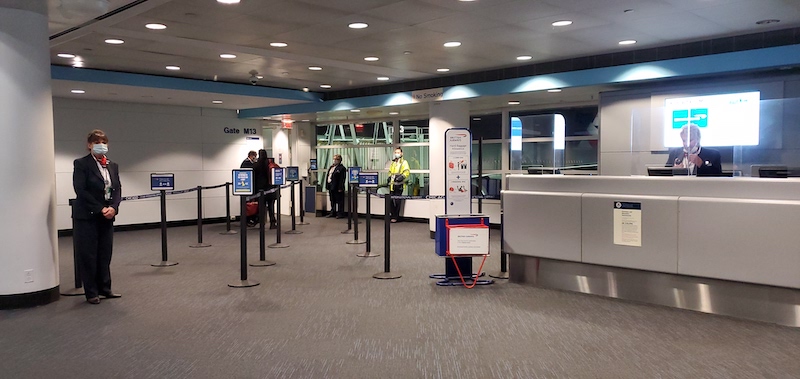
It is hard to imagine, but the N.T. Wright Online community is a worldwide group of learners, comprised by people from 192 countries speaking 49 different primary languages. Prof. Wright cannot see the faces of students as he would in a classroom, which often provides valuable feedback. Yet, our students have commented that when they listen to or view a course that it feels as though Prof. Wright is talking directly to them. And, we do have you in mind, which is one of the reasons we go! Over the years, we’ve worked to improve the background, lighting, and production in order to remove as many distractions as possible.
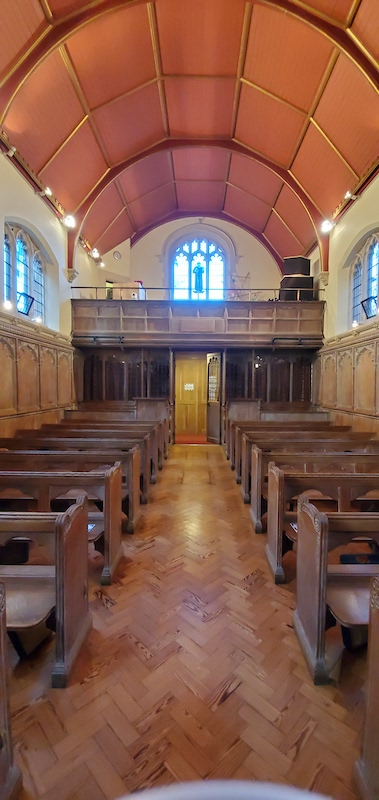 There are a variety of reasons why having David, or myself in this case, in-person is valuable. In fact, David was ‘present’ each morning as he greeted us by Zoom at 2:00 am in the US as we were kicking off the day around 8:00 am in the UK.
There are a variety of reasons why having David, or myself in this case, in-person is valuable. In fact, David was ‘present’ each morning as he greeted us by Zoom at 2:00 am in the US as we were kicking off the day around 8:00 am in the UK.
During our week at Wycliffe, we had to pause to ask the kind groundskeeper if he would mind pausing the leaf blowing, which was right outside the chapel’s windows. Stephen often made adjustments by shading the windows overhead as the sun came out. As we filmed into the evening, extra lighting would be added. There was also the matter of ensuring all of the lectures are completed in under twenty minutes, which is a requirement of Udemy, the online platform that hosts our courses.
How did you navigate the challenges of filming during Covid-19?
The simple answer is that we followed safety protocols, practised social distancing, and wore masks. I walked the mile distance to the chapel and back daily to avoid having to take a taxi. Inside Wycliffe, foot traffic is routed in a one-way direction and signs point you in the way that you can travel. There is one way in and a separate way out. We ordered take-away for lunch and rather than sitting together at a table, we remained in our separate corners about 10-15 feet apart.
The other way that we navigated challenges of filming is to focus on why we were doing this. We believe it is part of our mission for the worldwide church and the world to make the Word of God and Prof. Wright’s teachings available around the globe. We want to curate lectures that have a lasting impact for the kingdom. And, in the end, the mission we are talking about is all about of God of hope and the work he is already doing in the world.
In between responsibilities for producing the course, I was able to sit quietly and listen as Prof. Wright lectured. While monitoring time, sound, and lighting from my corner bench in the chapel at Wycliffe Hall, I took in new ideas about how our God of hope refreshes and comforts his people with his presence and what this means for the church. I’d read the book before, but I was surprised how new it all seemed and just how timely it was as my grandmother had recently passed away. I found myself being comforted in surprising ways by our God of hope.
In closing, here are some of the questions that make up the focus of this course:
- Who makes hope distinctively Christian?
- What is the specifically Christian way of talking about what happens after people die?
- When did all this confusion about life after death begin to permeate the church?
- Where in the New Testament does it speak about the resurrection of the body
- Why does all of this matter?
- How do we recover hope in the public square, social life, and in our family and walk of faith?
I ‘hope’ you will join us!
Jennifer Loop
Latest posts by Jennifer Loop (see all)
- Why You Need Lent: Two Perspectives - February 22, 2023
- How (Not) To Understand a Parable - October 20, 2022
- What People are Saying About ‘Ethnicity, Justice and the People of God’ - February 10, 2022


